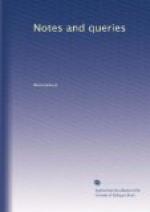“He built a ship, in which one could row and navigate under water, from Westminster to Greenwich, the distance of two Dutch miles; even five or six miles, as far as one pleased. In this boat, a person could see under the surface of the water, and without candlelight, as much as he needed to read in the Bible or any other book. Not long ago, this remarkable ship was yet to be seen lying on the Thames or London river.
“Aided by some instruments
of his own manufacture, Drebbel could
make it rain, lighten, and
thunder at every time of the year, so
that you would have sworn
it came in a natural way from heaven.
“By means of other instruments, he could, in the midst of summer, so much refrigerate the atmosphere of certain places, that you would have thought yourself in the very midst of winter. This experiment he did once on his Majesty’s request, in the great Hall of Westminster; and although a hot summer day had been chosen by the King, it became so cold in the Hall, that James and his followers took to their heels in hasty flight.
“With a certain instrument,
he could draw an incredible quantity
of water out of a well or
river.
“By his peculiar ingenuity,
he could, at all times of the year,
even in the midst of winter,
hatch chickens and ducklings without
using hens or ducks.
“He made instruments, by means of which were seen pictures and portraits; for instance, he could show you kings, princes, nobles, although residing at that moment in foreign countries. And there was no paint nor painter’s work to be seen, so that you saw a picture in appearance, but not in reality.”
Perhaps a magic lantern?
“He could make a glass, that placed in the dark near him or another, drew the light of a candle, standing at the other end of a long room, with such force, that the glass near him reflected so much light as to enable him to see to read perfectly.”
Was this done by parallel parabolical mirrors?
“He could make a plane
glass without grinding it on either side,
in which people saw themselves
reflected seven times.
“He invented all these and many other curiosities, too long to relate, without the aid of the black art; but by natural philosophy alone, if we may believe the tongues whose eyes saw it. By these experiments, he so gained the King’s favour, his Majesty granted him a pension of 2000 guilders. He died in London, anno 1634, the sixtieth year of his age.”
Thus writes the Alkmaar chronicler. If you, or any of your learned correspondents, can elucidate the history of the instruments made by my countryman, he will much oblige all scientific antiquarians, and me, though not a Dr. Heavybottom, especially. I need not make apologies for my bad English, and hope none of your many readers will criticise it in a Dutch periodical.




